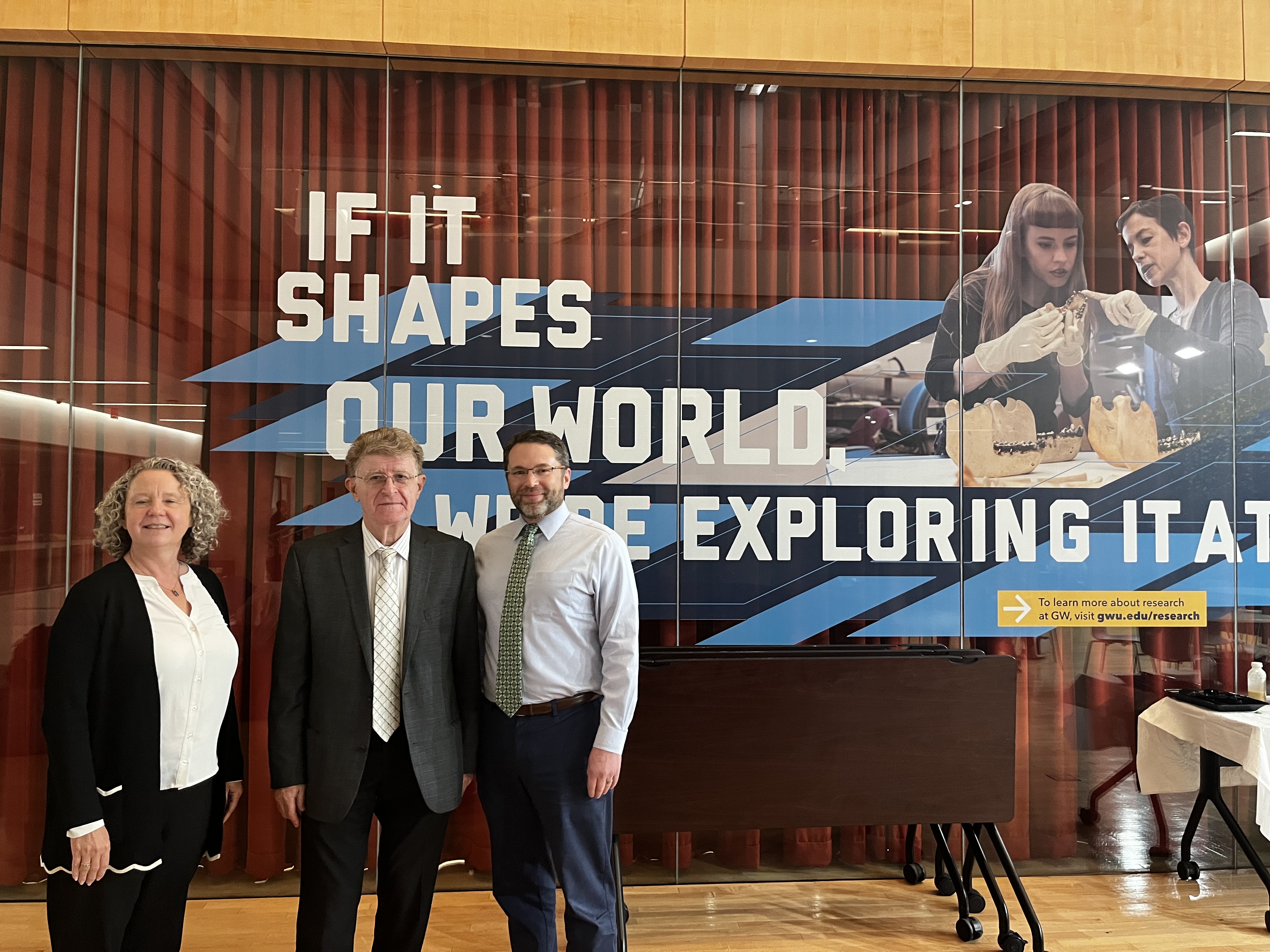GW Engineering believes that the principles of engineering can be leveraged to address the grand challenges of today. GW Engineering's Distinguished Lecture series promises to provide some interesting insights on the "convergence" of engineering and policy, law, business, ethics, social justice, health, humanities, and more, which embodies the school's "Engineering and.." brand. The January Distinguished Lecture "Principles of Convergence in Nature and Society" given by Mike Roco embodied this motto.
According to Roco, convergence is a problem-solving strategy for holistically understanding and transforming a system for reaching a common goals or satisfying a guiding law. Convergence approach creates a framework for decision-making and problem-solving not only for science and technology, but also for business, education, and humanities.
Basic principles and methods underlying the convergence science were presented. Roco is a Senior Advisor for Science and Engineering at the National Science Foundation and founding chair of the U.S. National Science and Technology Council's subcommittee on Nanoscale Science, Engineering and Technology (NSET).
The definition of convergence Roco gave was a unifying strategy to reach a shared goal or satify a natural law, applicable to all evolving complex systems, and modeled as neural networks. He argued that the resulting systems of evolution are too complex to be analyzed with a single method, thus convergence is their proposed method to a common goal.
"From different divergent events you get a convergence. The convergence-divergence cycle is dynamic and is seen throughout society from AI to nature," Roco said.
Examples of convergence methods in education are "trading zones" among teaching various areas of relevance and multi-domain courses, departments, and libraries. However, convergence does not only exist within fields for it also has formed several fields. Roco said the foundational one is nanotechnology with its spin-off systems being quantum systems, metamaterials, etc.
Roco ended his lecture by stating, "Convergence is an evolutionary strategy to improve and accelerate outcomes in complex systems. Certainly this is a continuous process and each event is finite. I could continue the discussion because the topic is open and never finished, just like evolution. In fact, the main message is that all systems evolving is a universal evolution process. If you extract what is essential you can see how this is common, how it happens in a systematic way, and how we can improve results."


